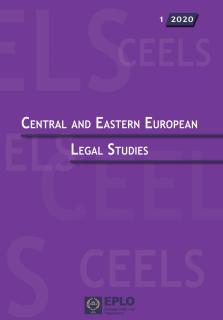
Προστασία της Γλωσσικής Πολυμορφίας και Εκπαίδευσης σε Ενωσιακό Επίπεδο:
Επαγγελματικά και Ακαδημαϊκά Δικαιώματα
Δικηγόρος παρ’Εφέταις, Υπ. Διδάκτωρ Διοικητικού Δικαίου στο Εθνικό και Καποδιστριακό Πανεπιστήμιο Αθηνών, Μ.Δ.Ε. Δημοσίου Δικαίου και Πολιτικής Επιστήμης με εξειδίκευση στο Διοικητικό Δίκαιο στο Δημοκρίτειο Πανεπιστήμιο Θράκης, Weiterbildung Deutsches Recht, Rheinische Friedrich - Wilhelms Uni Bonn
Στη παρούσα μελέτη, έγινε αντιληπτή, σε ένα πρώιμο τουλάχιστον στάδιο, η σύνδεση ενιαίας επαγγελματικής ευρωπαϊκής αγοράς και ελευθερίας εγκατάστασης με την ανάγκη κοινής αντιμετώπισης της εκπαιδευτικής πολιτικής και θέσπισης ενός ενιαίου τρόπου πιστοποίησης της γλωσσομάθειας. Στη συνέχεια, εξετάστηκε το έδαφος εντός του οποίου γεννήθηκαν κοινές πολιτικές για τις ευρωπαϊκές γλώσσες, και αναλύθηκαν οι αρχές και τα δικαιώματα που σχετίζονται με τη γλωσσομάθεια εν γένει. Συγκεκριμένα, αποτυπώθηκαν οι αρχές και τα δικαιώματα που συνδέονται με τη γλώσσα και τη γλωσσομάθεια σε επίπεδο πρωτογενούς, αλλά και δευτερογενούς ενωσιακού δικαίου. Επιχειρήθηκε, επίσης, η κατάδειξη της οργανικής σύνδεσης της γλωσσομάθειας με τα διπλώματα εκπαίδευσης, καθώς και με τα επαγγελματικά δικαιώματα σε διακρατικό και σε ενωσιακό επίπεδο. Η νομολογιακή επισκόπηση της εν λόγω σύνδεσης ακολούθησε και διαμόρφωσε τη σύνδεση της αρχής της μη διάκρισης με τη γλωσσομάθεια. Τέλος, εξετάστηκε η αρχή της ισότητας, ισοτιμίας και ισοδυναμίας των ευρωπαϊκών γλωσσών, καθώς και η αρχή της πολλαπλογλωσσίας ως αποτύπωση της γλωσσικής δημοκρατίας στην Ευρωπαϊκή Ένωση.
Findings of the present study revealed that, at an early stage, the European Single Market and the Freedom of Establishment are inextricably linked to the need of a common approach to the educational policy and the establishment of a uniform language proficiency certificate. Subsequently, a thorough examination of the territory where common policies as regards European languages had been born took place, as well as an analysis of the principles and rights relating to linguistic competence. More specifically, it was the principles as well as the rights pertinent to language and linguistic competence that were reflected, at a primary and secondary Union law level. An organic link of language competences to education diplomas and professional rights at a transnational and Union level was also attempted. The jurisprudential review of the aforementioned association that followed, constituted the connective tissue between the principle of non-discrimination and language proficiency. Finally, in addition to the principle of equality and equivalence in foreign languages, the principle of multilingualism as a token of linguistic democracy also came under scrutiny.




















